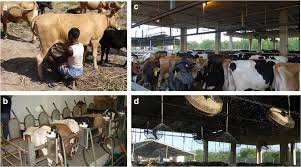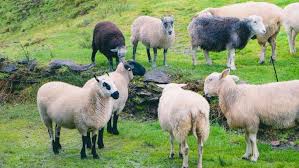An in-depth understanding of the past and modern approaches to livestock breeding is fundamental to our understanding of the challenges in animal production practices in the tropics. Crossbreeding has been offered as intervention to reduce obvious gap in the genetic merits
existing between temperate and tropical breeds.
There are a few other options (e.g. use of indigenous breeds, developing new synthetic breeds etc) still available but have not been applied or perhaps reserved for the future. Practitioners and students are required to appreciate the genetic constraints tropical livestock and be armed with sufficient knowledge for improvement.
Crossbreeding as tool for improvement has been widely applied but certainly not only the tool applicable. Equally important options are the use of indigenous breeds and upgrading with exotic or local breeds of proven genetic merits. Developing new synthetic breeds and the application of genetic engineering techniques are being advocated for national or regional livestock genetic improvement.
Read Also: Crossbreeding as Tool for Tropical Livestock Improvement
Sufficient evidence exist to suggest that more than 50% of the differences in performance of tropical and temperate-type breeds of livestock are due to their inherent genetic abilities or merits. In other words, under fairly conducive environmental conditions, tropical and temperate stock exhibit clear difference in economic traits as a result of genetic differences.

In cattle for example, traits showing genetic differences are: age at first calving, calving percentage, milk yields, length of lactation, birth weight, rate of daily live weight gain and
mature body weight. In addition, McDowell (1972) listed gestation length, generation interval and carcass killing-out percentage as traits showing genetic difference between tropical and temperate stock.
Further evidences have emerged to prove that some tropical breeds such as Bali cattle are not inferior to temperate breeds with respect to some traits like calving percentage, mature body weight and carcass killing-out percentage. In the light of genetic differences in traits, tropical
livestock breeders must make efforts to adopt suitable breeds and breeding system that will address traits of economic advantage in their stock.

